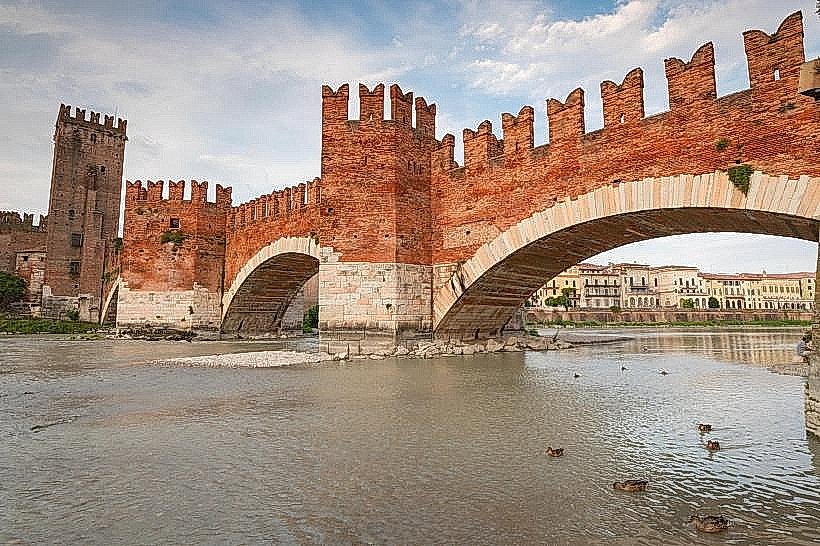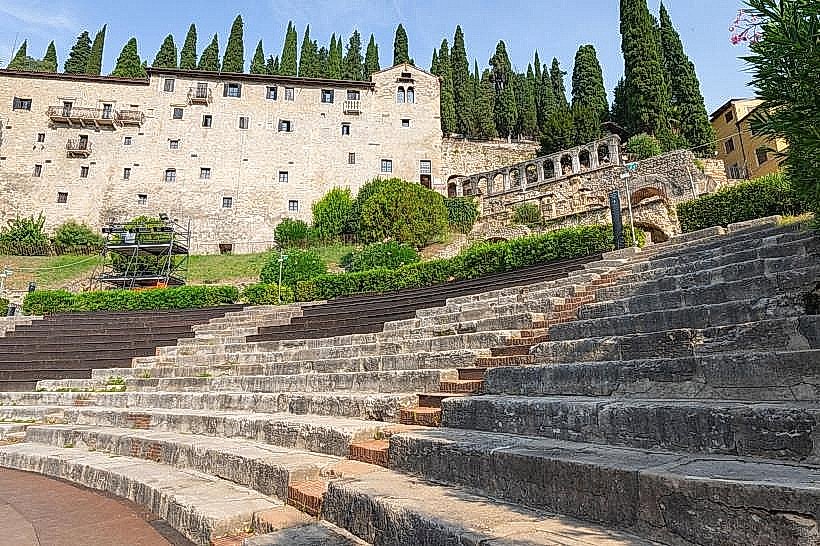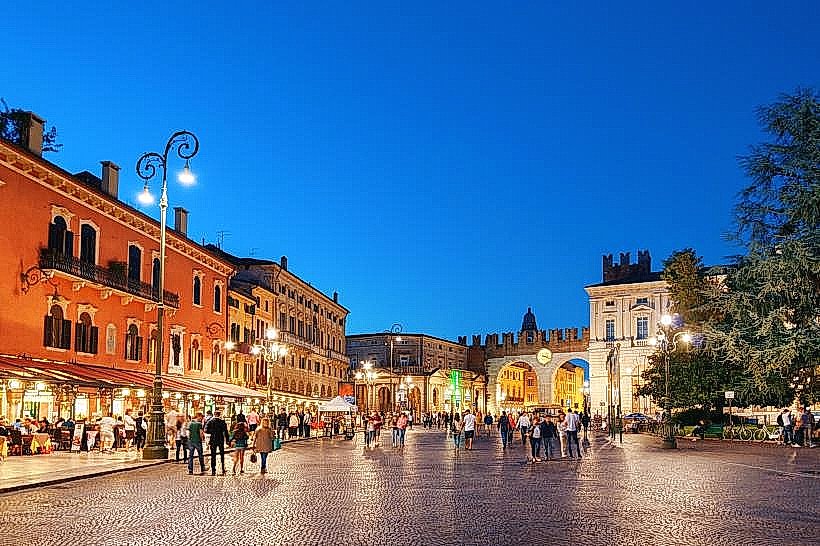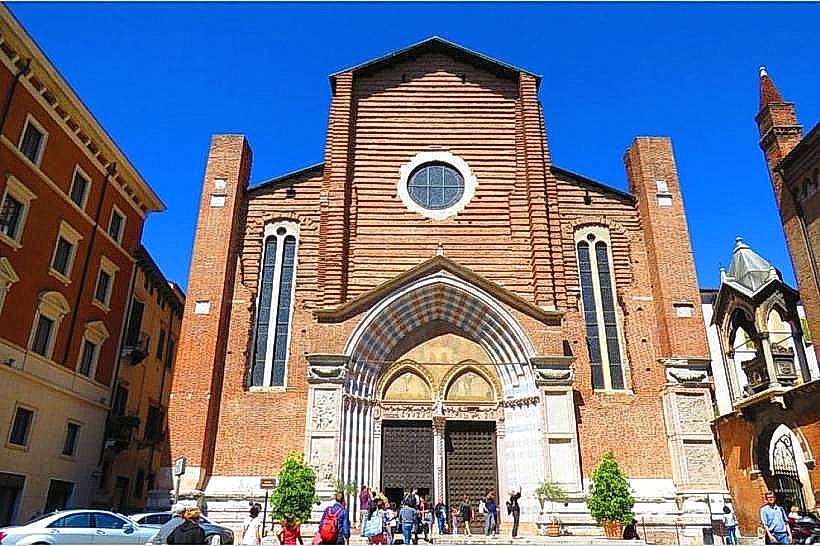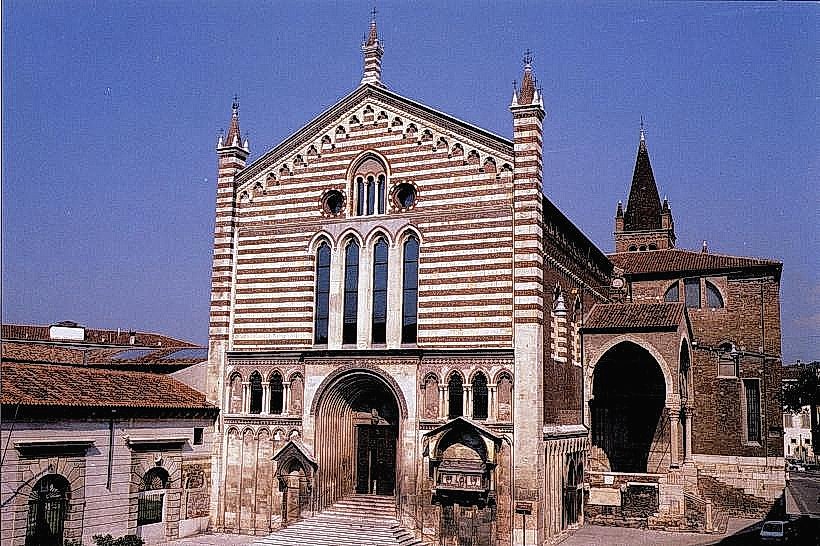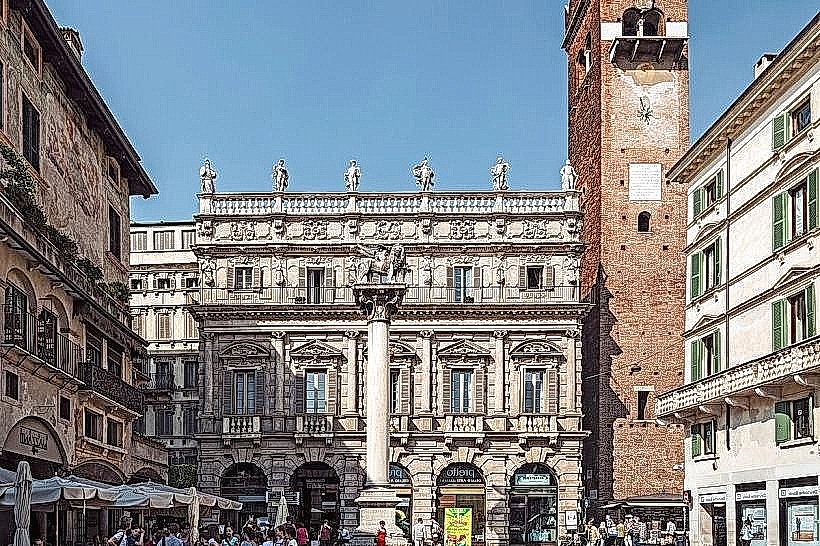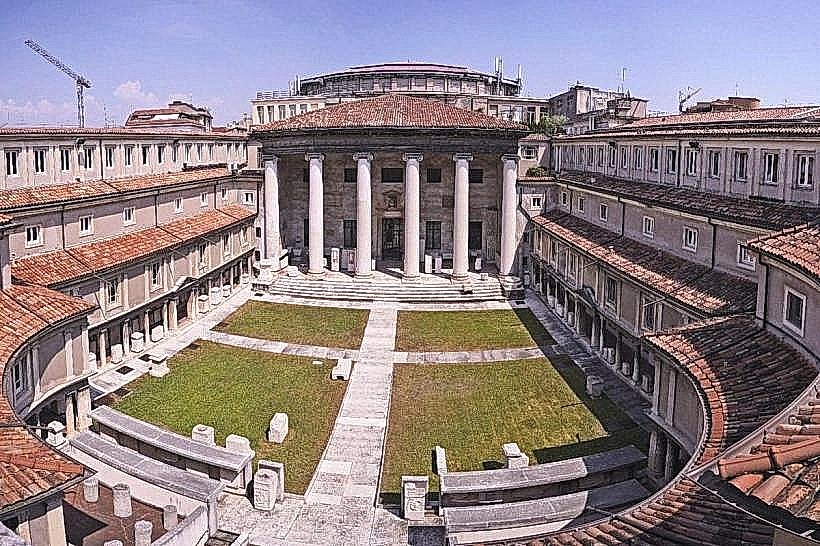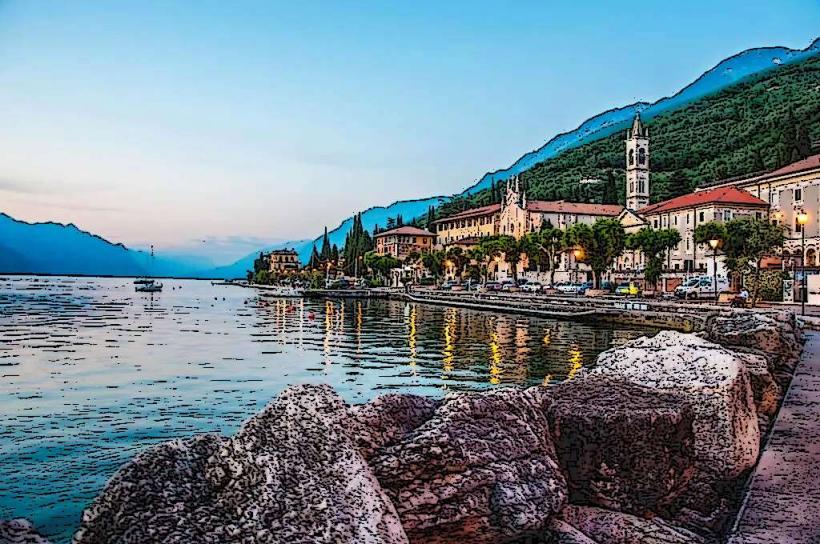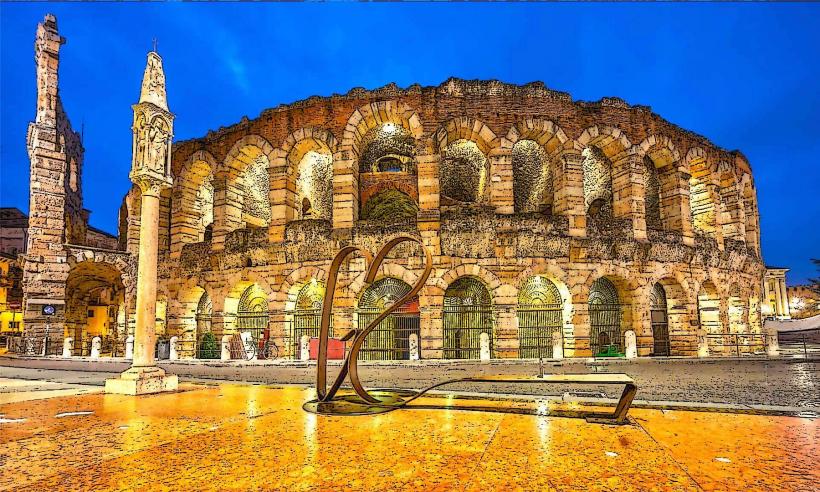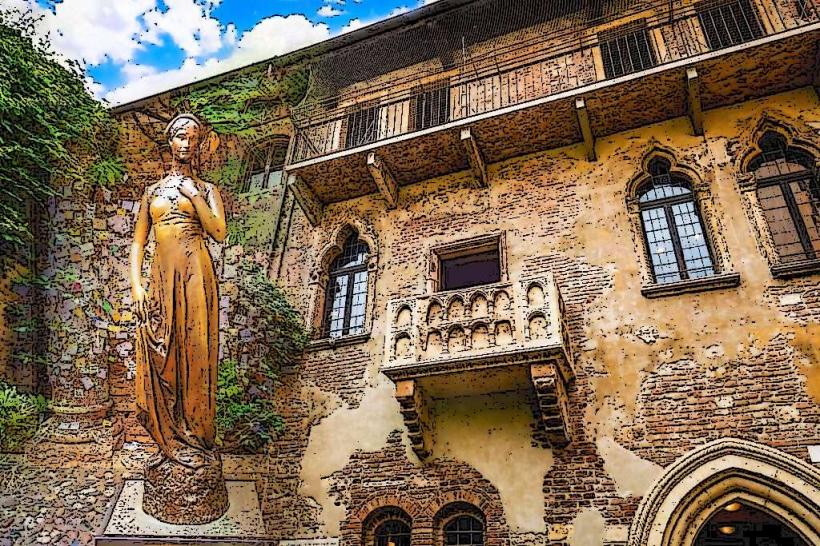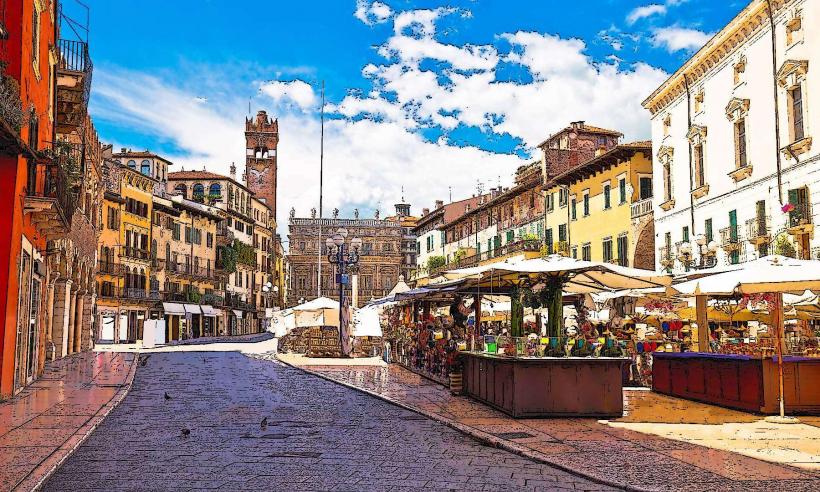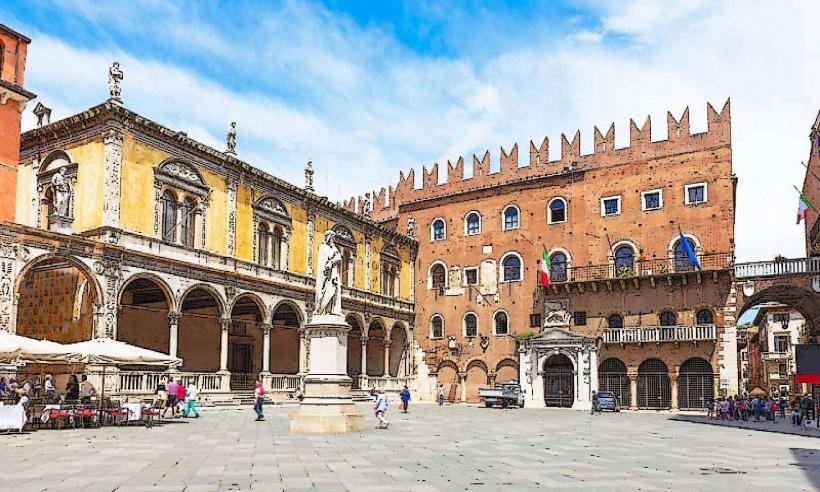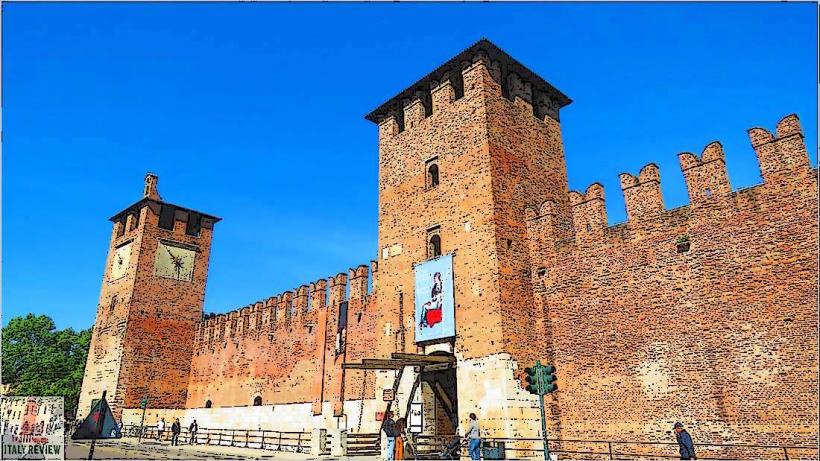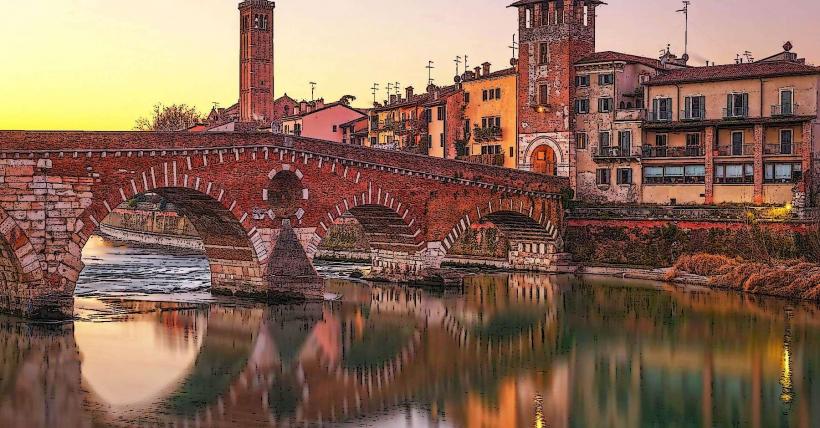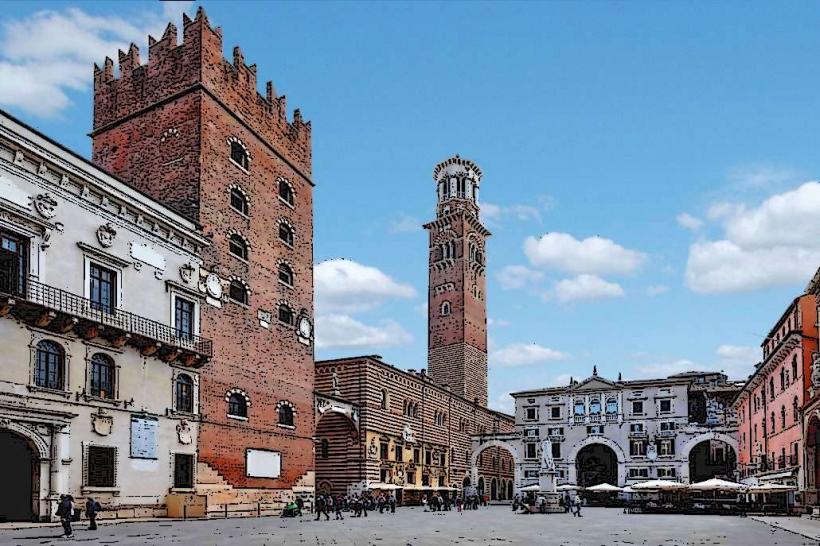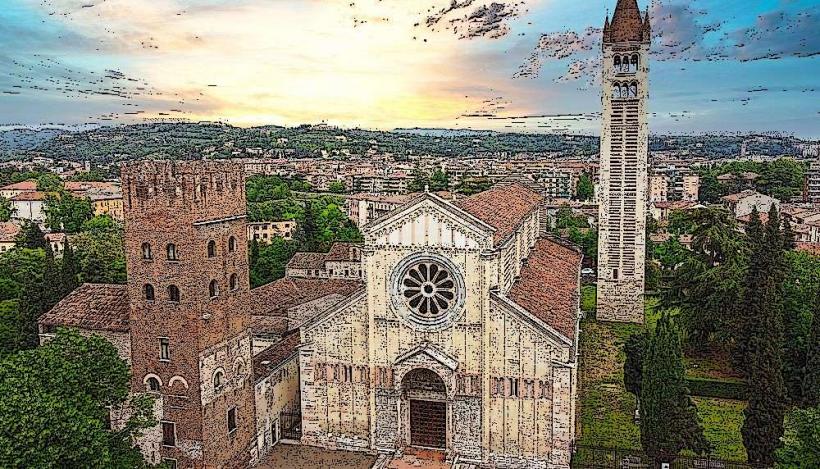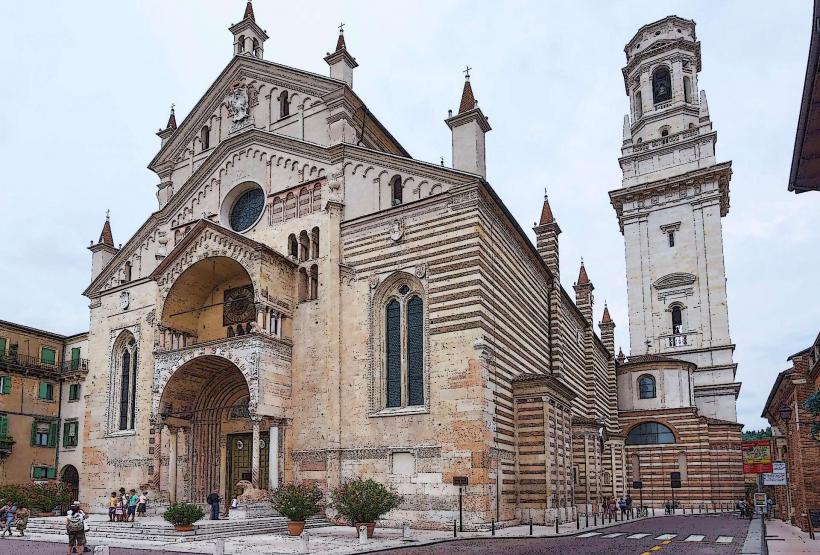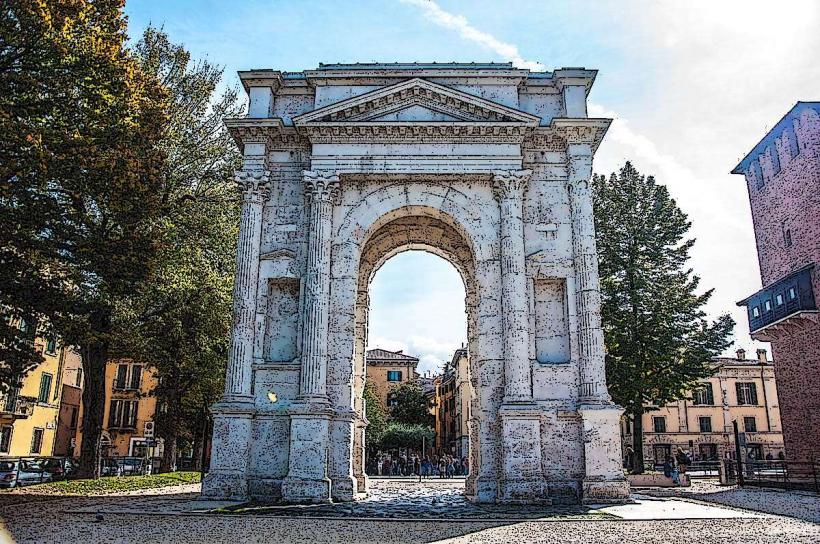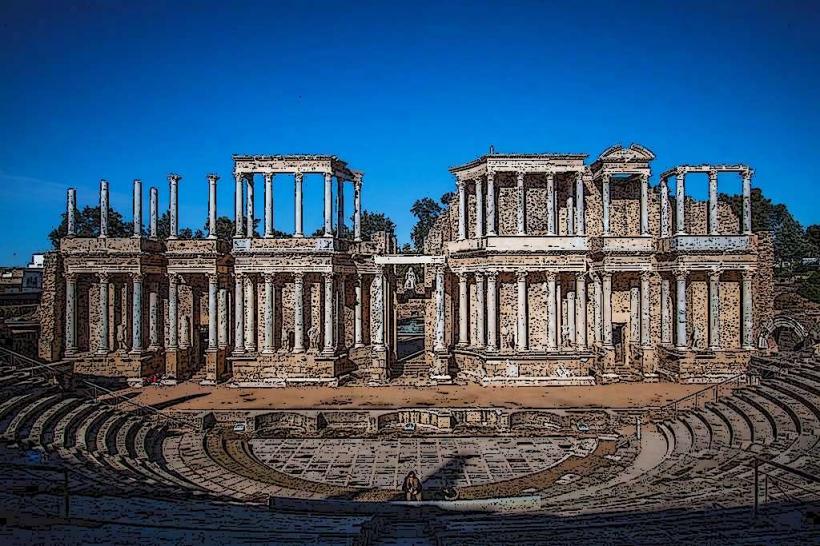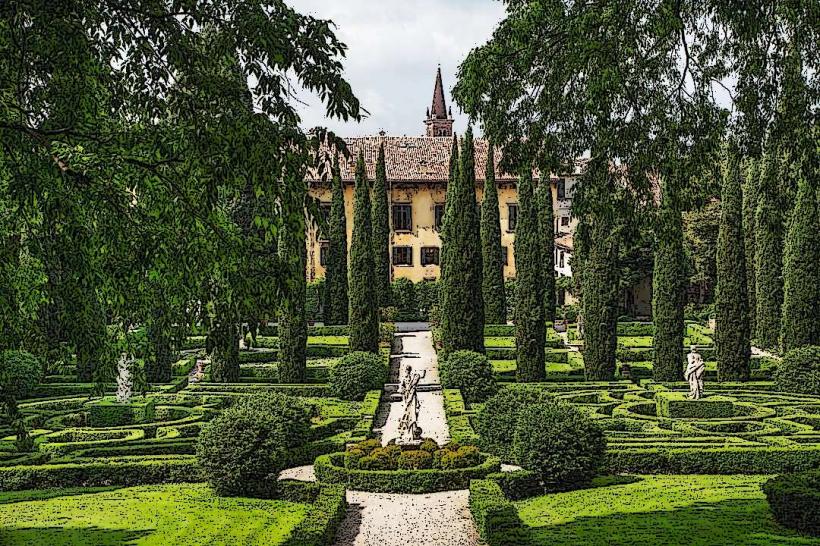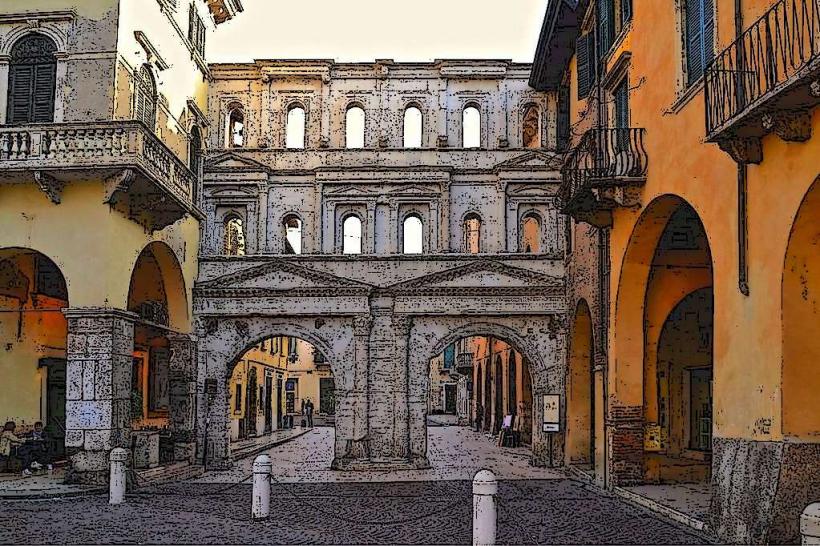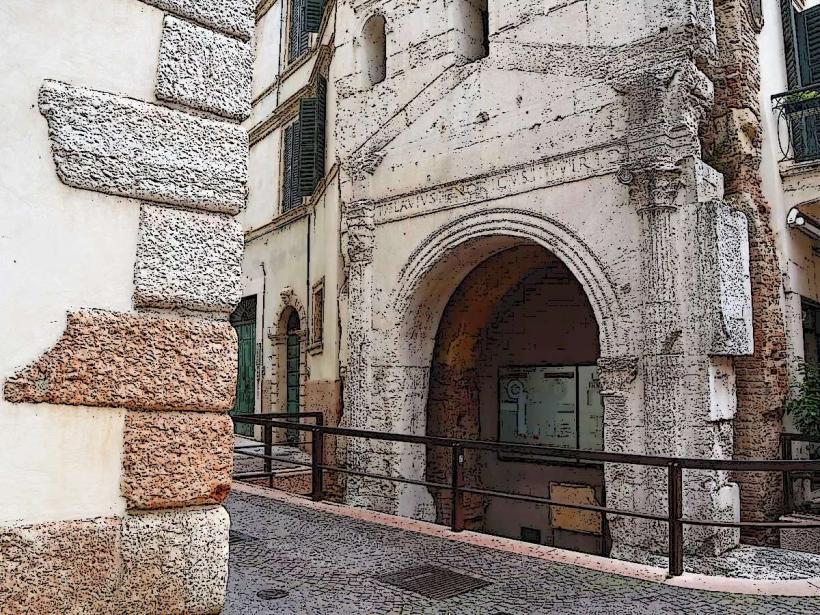Information
Landmark: Scaliger Tombs (Arche Scaligere)City: Verona
Country: Italy
Continent: Europe
Scaliger Tombs (Arche Scaligere), Verona, Italy, Europe
The Scaliger Tombs (Arche Scaligere) form one of Verona’s most striking and evocative monuments-a cluster of Gothic funerary masterpieces rising beside the small courtyard of the Church of Santa Maria Antica, just off Via Arche Scaligere near Piazza dei Signori. They stand as silent guardians of the Scaligeri dynasty (the Della Scala family), who ruled Verona from the 13th to the late 14th century, leaving behind both power and artistry etched in stone.
Setting and First Impressions
Approaching from the narrow medieval streets, the tombs seem to appear suddenly-a burst of ornate pinnacles and ironwork framed by ochre façades. The surrounding wrought-iron gate, decorated with miniature ladders (the scala, the family’s emblem), encloses the small funerary yard like a jewel box. Inside, the tombs rise vertically, each more elaborate than the last, carved from pink Verona marble that glows softly under the afternoon sun.
Historical Background
The Scaliger family transformed Verona into one of northern Italy’s most powerful city-states during the Middle Ages. Their lineage began with Mastino I della Scala in the 1260s and peaked under Cangrande I della Scala, the most celebrated of the dynasty-patron of the arts, warrior, and friend to Dante Alighieri. The tombs, built between the 14th and 15th centuries, were meant both as resting places and as political statements of prestige.
The Tombs
Each of the five monumental canopies represents a different member of the dynasty, blending sculpture and symbolism with the Gothic elegance typical of northern Italian craftsmanship.
Cangrande I della Scala (d. 1329) – The most famous and oldest of the group. His tomb is elevated above the church entrance, crowned by a life-size equestrian statue of the lord on horseback, smiling in his characteristic serene expression. The carving captures him in motion, almost alive. Below, delicate bas-reliefs recount his military triumphs.
Mastino II della Scala (d. 1351) – His tomb stands nearby, richer in detail, with Gothic arches, spires, and figures of saints. Mastino’s mounted effigy sits atop a sculpted baldachin, combining military grandeur with religious devotion.
Cansignorio della Scala (d. 1375) – Often considered the most ornate, this monument embodies late Gothic refinement. It brims with intricate canopies, angels, and statues representing the Virtues, all carved with astonishing precision.
Alberto I and Giovanni della Scala – Simpler in design, these smaller tombs complete the dynastic ensemble, placed within the same courtyard as an ongoing tribute to the family’s lineage.
Architecture and Artistic Significance
The Scaliger Tombs blend French Gothic verticality with Italian decorative exuberance. Their spired canopies echo cathedral architecture, while the equestrian effigies reflect chivalric ideals of the medieval lord as both protector and hero. Local artisans, likely influenced by the workshops of Venice and Milan, sculpted every figure and ornament with almost narrative attention-each angel, soldier, and heraldic motif part of a sculptural chronicle of power.
Atmosphere and Visitor Experience
Standing among the tombs, one feels the stillness of a private chapel open to the city. The marble carvings are weathered but remarkably intact; their details soften under Verona’s golden light. The faint echo of footsteps in the nearby piazza contrasts with the solemn silence here. From this quiet courtyard, you can look upward and see Cangrande’s statue watching eternally over his city, as if the dynasty’s memory still hovers above Verona’s medieval heart.
More than funerary monuments, the Scaliger Tombs are sculpted chronicles of Verona’s medieval soul-a place where art, history, and human ambition converge in stone.

